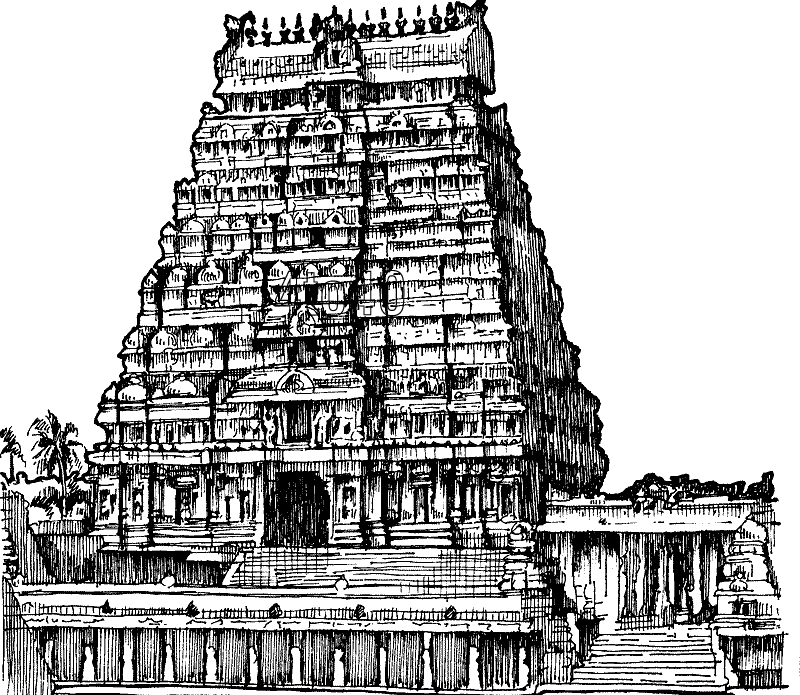LALITHA SAHASRANAMAM - Namah # 176
- S Subramaniam
- Feb 1, 2023
- 2 min read
LALITHA SAHASRANAMAM
@ S. Subramaniam

[ 49. Nirvikalpa Nirabadha Nirbheda Bhedanashini ]
निर्विकल्पा (176)
Nirvikalpa (176)
Meaning:
Devi represents that state of mind that exists beyond the limitations of time, space, and consciousness.
Interpretation:

In the Namah Nir means Without or beyond and Vikalpa means imagination, fantasy or any illusion. Therefore the term Nirvikalpa should be understood to mean Devi is beyond the reach of any imagination or any thinking by mind. She is beyond the ambit of limitations such as time, space and consciousness.
When expanded, we get the phrase Na Vidyate Vikalpah (Prakasa) Yasyam Tadrupa. There is no theory (or idea) opposed to Her existence.

There is also another explanation for this nama - Vi + Kalpa = Vikalpa. Vi means opposition and kalpa means theory. Here, theory means the Brahman. Therefore this namah can also be interpreted as Devi is the Brahman and there is no opposition to this theory of addressing Her as the Brahman.

Nirvikalpa Samadhi
Nirvikalpa is an advanced stage of samadhi, which is attained by meditation. Nirvikalpa samadhi refers to a state where there is no discrimination between the subject and object. It is an awareness of identity or non-difference.
In Nirvikalpa stage there will be no mental modifications. As long as mind continues to function, nirivikalpa samadhi cannot be attained.
Acknowledgment :A History of Indian Philosophy - Surendranath Dasgupta
Author's Notes
Nirvikalpa (निर्विकल्प) refers to “that which is free of thought”. We find mention of the term Nirvikalpa in the following Sanskrit texts:

Quote from Viveka Chudamani by Adi Shankara
निर्गुणं निष्कलं सूक्ष्मं निर्विकल्पं निरञ्जनम् ।
एकमेवाद्वयं ब्रह्म नेह नानास्ति किंचन ॥ ४६८ ॥
Nirgunam Nishkalam Sukshmam Nirvikalpam Niranjanam |
Ekameva Dvayam Brahma Neha Nanasti Kinchana || 468 ||
468. There is only Brahman, the One without a second, beyond attributes, without parts, subtle, absolute and taintless; there is no duality whatsoever in It.

Quote from Mandukya Upanishad
निगृहीतस्य मनसो निर्विकल्पस्य धीमतः ।
प्रचारः स तु विज्ञेयः सुषुप्तेऽन्यो न तत्समः॥३४॥
Nigra hitasya manaso Nirvikalpasya dhimatah | Pracharah sa tu vijneyah sushupte anyo na tat samah || 34 ||
34. The behavior of the mind that is under control, i.e., which is free from all imaginations and that is endowed with discrimination, should be known. The condition of the mind in deep sleep is of another sort and not like that.

Quote from Garuda Purana
Sage Narada once asked Lord Shiva about the means by which a man could become free from the delusions of the world. Lord Shiva revealed to him the contents of Kulamrita stotra, eulogizing the majesty of Lord Vishnu. By chanting this stotra, Narada successfully attained that supreme status.

In the Kulamrita stotra we find mention of the word Nirvikalpa
अचलम् सर्वघगम् विश्णुम् सदा ध्यायेन् विमुच्यत
निर्विकल्पम् निराभासम् निश प्रपन्चम् निरामयम
Achalam Sarvagam Vishnum Sada Dhyayen vimuchtyaye. Nirvikalpam Nirabhasam Nish Prapancham Niramayam.
In the above verse also the term Nirvikalpam, one of the qualities of Maha Vishnu, as described by Lord Shiva, means the one who is free from imaginations.
Disclaimer: All matters contained in this article are the property of www.templesofasia.com. The opinions expressed in this article are purely that of the author. The author alone is responsible for the accuracy, authenticity, completeness and validity of all the information in the article.


Comments